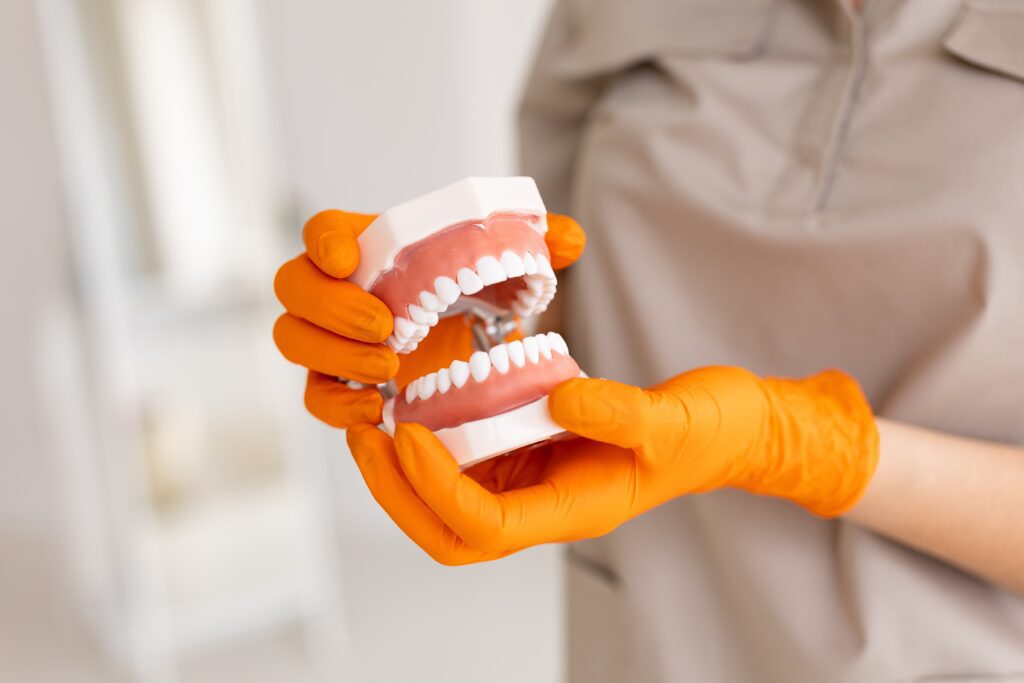When talking to people, I often describe the UK’s dental crisis as our most desperate ‘political emergency’.
I absolutely stand by this. I’m sure that our capacity to get NHS dentistry fixed will be one of the most important yardsticks by which voters will measure this Government’s success.
It’s an electoral crisis just as much as a health crisis, and every Labour MP should be doing everything they can to fix it.
My constituency of Bury St Edmunds & Stowmarket, a wonderful slice of Suffolk, sits right in the middle of a so-called ‘dental desert’.
Although some areas in the country, such as north-west London, are well supplied with NHS dentists, many in rural parts of the country simply don’t have enough.
Of the few dentists we have, many have stopped accepting new NHS patients.While doing the rounds, I’ve spoken to many people who are unable to access basic dental care, despite being entitled to it on the NHS.
Families of six where every child has had to register with a different dentist, some a long car ride away. I’ve even heard of terrible cases where people have had to resort to grisly DIY dentistry.
While the East of England is particularly hard-hit, the shortage of NHS dentists is a national problem, and a particularly miserable one for children.
Almost half of all children across the country haven’t seen a dentist in the past year. It’s a sad truth that tooth decay is now the leading cause of hospital admissions for five-to nine-year-olds.
As an ear, nose, and throat surgeon, the number of children I’ve had to operate on with neck abscesses because of untreated tooth decay has skyrocketed over the last decade and a half.
Such a situation, which was once rare, is now alarmingly routine. Children are being forced to take time off from school, compromising their learning, because of tooth trouble.
Children in deprived communities have poorer oral health than those living in more affluent communities. It’s another one of the huge inequalities that have developed over the last decade and a half.
However, for the first time in years, I think we’re beginning to turn a corner. Not only is the Government serious about tackling the problem, but they’ve also, crucially, started to act.
Already, they’re clawing back money from the dental underspend and using it to fill the cavity in dental provision with 700,000 new urgent appointments.
This is a fantastic measure, but the scale of the challenge demands that we go further, and I’m glad ministers have committed to getting to the root of the dental disaster.
They have committed to looking at additional commissioning flexibilities for integrated care boards (ICBs). There are currently many issues with this – the existing Unit of Dental Activity (UDA) system continues to disincentivise NHS work, particularly for younger dentists.
We will need a new system to properly reward complex treatment and support preventive care.
Analysis from the Department for Health suggests that raising the minimum UDA value to £35 could prompt a real shift of workforce from private to NHS care.
Pilots in places like Sussex and South Cumbria have shown how flexible commissioning can increase access to NHS dentists and stabilise provision.
However, as I have heard many times, it feels like the NHS has more pilots than the RAF.
Bold reform must be accompanied by wider support for dentists across their careers, ensuring they stay in the profession.
Dental professionals are leaving the NHS due to financial pressures, lack of flexibility, and burnout, especially in underserved areas.
To tackle this, we must expand the number of dental school places, support training institutions and look at slashing the red tape that prevents qualified overseas dentists from practising in the UK.
For example, the capacity of the GDC overseas exam is still only 600. This is simply inadequate to tackle the enormous problem of high Delivering new dentistry schools is a big part of the puzzle.
The Peninsula Dental School, operating as part of the University of Plymouth, has shown the way by offering free urgent dental appointments.
In my patch, getting the University of East Anglia dental school in Norwich off the ground will do much to ensure more dentists in the east of England.
All this will contribute to ending the terrible dental postcode lottery that prevents so many people from keeping their teeth healthy.
A wholesale shift to preventative oral care will also be necessary to ensure that people have healthy teeth and won’t need to access emergency dentistry.
I’m also encouraged to hear support from ministers for a greater emphasis on prevention.
Simple, evidence-based interventions, like supervised toothbrushing in schools and skill-mix models involving dental nurses and therapists, can make a major difference.
If we’re serious about building a sustainable, efficient NHS, we must invest in keeping people well, not just treating them once they’re sick.
NHS dentistry isn’t broken. It can be saved. But it will take courage, co-operation, and commitment.
Featured image via Shutterstock.


